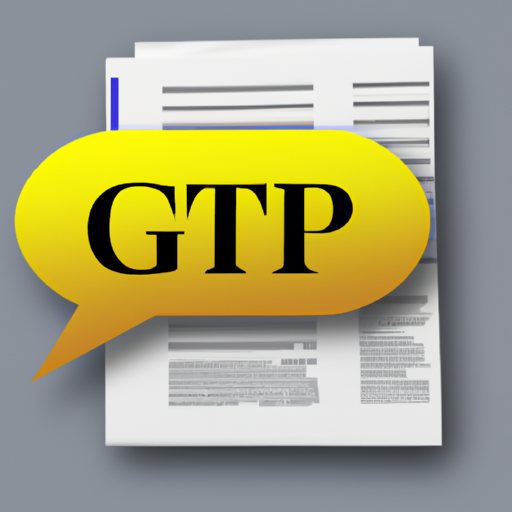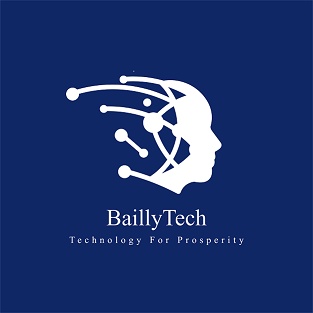Exploring the Power of Your Own ChatGpt with PDF Data: Revolutionizing Communication and Data Analysis
In today’s digital age, PDF documents have become a staple in the business world, serving as a reliable format for storing and sharing information. However, extracting insights from these PDFs can often be a daunting task, as the data is typically locked away in static files. Enter ChatGpt, a revolutionary technology that leverages artificial intelligence to interact with and analyze PDF data. In this blog post, we will explore the exciting possibilities of using ChatGpt models to streamline communication, enhance collaboration, and unlock valuable insights from vast amounts of information stored in PDF documents.

Streamlining Communication with ChatGpt:
Traditional methods of extracting information from PDFs involve manual efforts such as data entry or conducting time-consuming keyword searches. Such approaches are not only labor-intensive but also prone to errors. ChatGpt models, however, provide an interactive and conversational interface to work with PDF data, allowing users to ask questions and receive instant responses. This streamlined communication saves time and effort while ensuring accurate and comprehensive analysis.
Enhancing Collaboration with ChatGpt:
Collaboration across teams is essential for efficient data analysis. ChatGpt with PDF data can serve as a virtual collaborator, enabling easier sharing and interpretation of information stored in PDFs. With the ability to generate conversational responses and address queries in real-time, ChatGpt fosters seamless collaboration between team members, irrespective of geographical or time zone constraints. This enhanced collaboration leads to quicker decision-making, improved problem-solving, and increased efficiency in data analysis tasks.
Unlocking Valuable Insights from PDF Data:
PDF documents often contain a wealth of valuable information, but extracting insights from them can be a tedious process. ChatGpt, armed with deep learning capabilities, can sift through vast amounts of PDF data, identify patterns, and provide meaningful insights. Whether it’s extracting financial data, analyzing customer feedback from surveys, or summarizing research findings, ChatGpt with PDF data can unlock valuable information that might otherwise go unnoticed. Organizations can leverage these insights to make data-driven decisions, drive innovation, and gain a competitive edge.
Real-Life Use Cases and Success Stories:
Numerous organizations have already incorporated ChatGpt models to transform their data analysis processes. For example, financial institutions are leveraging ChatGpt to automate the analysis of financial reports and statements, allowing for faster identification of anomalies or trends. Research organizations are using ChatGpt to extract relevant information from scientific articles, speeding up literature reviews and enabling researchers to make connections across studies more efficiently. These real-life use cases demonstrate the versatility and efficiency of using ChatGpt with PDF data.
Challenges and Limitations:
While ChatGpt technology offers immense potential, it also comes with certain challenges and limitations. PDF data can be unstructured, making it difficult for ChatGpt models to accurately interpret and analyze. Furthermore, ChatGpt models may struggle with complex layouts, non-standard formatting, or handwritten text. Overcoming these challenges requires pre-processing techniques such as text extraction, formatting standardization, and data cleaning. Adopting these strategies can help users align their PDF data with ChatGpt models more effectively.
Practical Tips and Strategies:
To make the most of ChatGpt with PDF data, consider the following practical tips and strategies:
- Pre-process PDF data: Convert and extract text from PDFs using appropriate tools to enhance the model’s ability to analyze the data accurately.
- Standardize formatting: Ensure consistency in formatting across PDF documents to reduce ambiguity and increase the model’s comprehension.
- Collaborative training: Train the ChatGpt model with domain-specific PDF data to enhance its understanding of context and industry jargon.
- Continuous learning: Regularly update and fine-tune the ChatGpt model to improve its performance and keep up with evolving data patterns.
ChatGpt with PDF data holds immense potential for revolutionizing communication and data analysis. With its ability to streamline communication, enhance collaboration, and unlock valuable insights from PDF documents, this innovative approach offers endless possibilities for organizations across industries. Recognizing the challenges and deploying practical strategies to overcome them enables users to fully harness the benefits and capabilities of incorporating ChatGpt with PDF data in their workflows. Embrace this technology to unlock the hidden potential within your PDF documents, driving innovation and staying ahead in the data-driven world.
